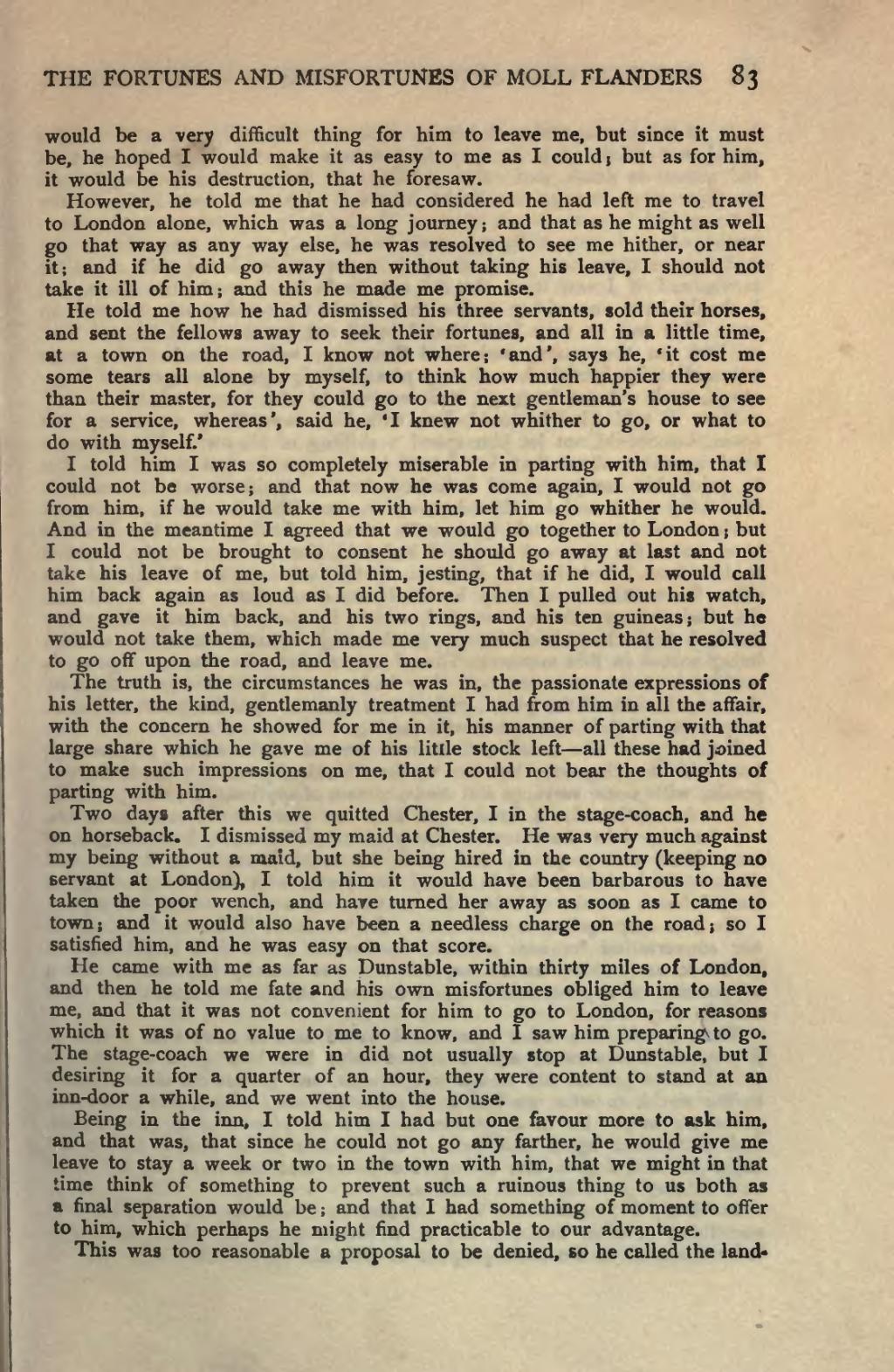THE FORTUNES AND MISFORTUNES OF MOLL FLANDERS
83
would be a very difficult thing for him to leave me, but since it must be, he hoped I would make it as easy to me as I could; but as for him, it would be his destruction, that he foresaw.
However, he told me that he had considered he had left me to travel to London alone, which was a long journey; and that as he might as well go that way as any way else, he was resolved to see me hither, or near it; and if he did go away then without taking his leave, I should not take it ill of him; and this he made me promise.
He told me how he had dismissed his three servants, sold their horses, and sent the fellows away to seek their fortunes, and all in a little time, at a town on the road, I know not where; 'and', says he, 'it cost me some tears all alone by myself, to think how much happier they were than their master, for they could go to the next gentleman's house to see for a service, whereas', said he, 'I knew not whither to go, or what to do with myself.'
I told him I was so completely miserable in parting with him, that I could not be worse; and that now he was come again, I would not go from him, if he would take me with him, let him go whither he would. And in the meantime I agreed that we would go together to London; but I could not be brought to consent he should go away at last and not take his leave of me, but told him, jesting, that if he did, I would call him back again as loud as I did before. Then I pulled out his watch, and gave it him back, and his two rings, and his ten guineas; but he would not take them, which made me very much suspect that he resolved to go off upon the road, and leave me.
The truth is, the circumstances he was in, the passionate expressions of his letter, the kind, gentlemanly treatment I had from him in all the affair, with the concern he showed for me in it, his manner of parting with that large share which he gave me of his litile stock left all these had joined to make such impressions on me, that I could not bear the thoughts of parting with him.
Two days after this we quitted Chester, I in the stage-coach, and he on horseback. I dismissed my maid at Chester. He was very much against my being without a maid, but she being hired in the country (keeping no servant at London), I told him it would have been barbarous to have taken the poor wench, and have turned her away as soon as I came to town; and it would also have been a needless charge on the road; so I satisfied him, and he was easy on that score.
He came with me as far as Dunstable, within thirty miles of London, and then he told me fate and his own misfortunes obliged him to leave me, and that it was not convenient for him to go to London, for reasons which it was of no value to me to know, and I saw him preparing to go. The stage-coach we were in did not usually stop at Dunstable, but I desiring it for a quarter of an hour, they were content to stand at an inn-door a while, and we went into the house.
Being in the inn, I told him I had but one favour more to ask him, and that was, that since he could not go any farther, he would give me leave to stay a week or two in the town with him, that we might in that time think of something to prevent such a ruinous thing to us both as a final separation would be; and that I had something of moment to offer to him, which perhaps he might find practicable to our advantage.
This was too reasonable a proposal to be denied, so he called the land-
